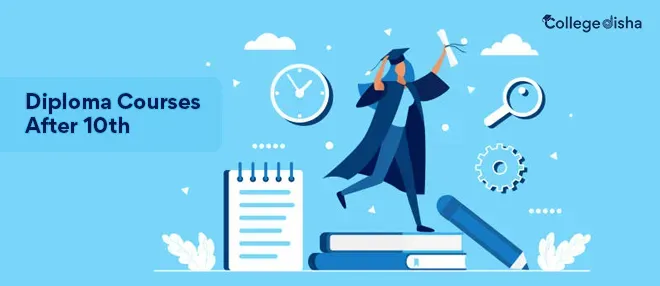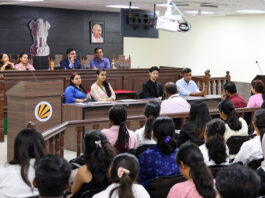Which is the best course after 10th class? Science or commerce? Short-term or polytechnic? There is a plethora of courses available to choose from after 10th standard. Engineering is the first thing that comes into mind of any student who’s about to enter the college life. Though this field is mostly preferred by class 12th students, the options are not limited to class 10th folks as well. Diploma or Polytechnic courses have become quite popular among the students as one can enroll in colleges without the requirement of completing class 12th.
There are endless courses available that students can pick depending on their interest. Diploma in Engineering is of 3 years’ duration and provides students with the basic knowledge of their field. Diploma courses in engineering teach students about practical aspects of the subjects. Strong foundation in the basics makes entry to engineering studies as well jobs easier. Here is a list of best engineering courses after 10th standard:
Automobile Engineering:
This course helps the candidates in learning consumer relationships, automobiles and market analysis, andalso taking a comprehensive view of sales & management. After completing Diploma in Automobile Engineering course, the professionals may work in the automobile industry on positions like Associate Manager, Production Engineer, Quality Engineer, Automobile Engineer, Design Engineer, Storekeeper, Field Service Engineer, etc.
Civil Engineering
This course specializes in the design, construction and maintenance of roads, canals, dams, bridges and buildings. Students can get exposure in construction management, building drawing, reinforced concrete structures, material testing, quality control and structural engineering drawing. Such professionals are hired as Chief Engineer, Assistant Manager, Executive Engineer, Assistant Field Inspector, Project Engineer, Quality Control Engineer, Researcher, etc.
Computer Science and Engineering
Computer Science is an interdisciplinary field that plays an important role in Science, Medicine, Music, Art, Business, Law, and Communication. Students develop competency in areas like programming, cloud computing, networks and security, database management systems, operating systems, etc. The professionals are hired as Software Engineer, Computer Operator, Assistant Manager, Support Engineer, Development Engineer, Design Engineer, Quality Control Engineer, Network Administrator, etc.
Electrical Engineering
With a Diploma in Electrical Engineering, students are equipped with basic knowledge and skillin areas such as Power Systems, Control Systems, Power Electronics etc. Students can opt for a career as an Electrical Design Engineer, Field Application Engineer, Transform Design Engineer, Verification Engineer, Technical Trainer, etc.
Electronics and Communication Engineering
The course involves an unconventional study of engineering-related application of electricity. It covers subjects of study such as electricity generation and transmission, electricity, design of electronic devices, components and circuits, electrical system and gadgets, etc. Such graduates are hired as Electronics Engineer, Design Assistant, Network Engineer, Broadcast Engineer, Manufacturing Systems Engineer, etc.
Mechanical Engineering
This engineering field involves the application of material science for analysis, planning, accumulating, and upkeep of mechanical structures. Such diploma-holders are hired asMechanical Engineer, Mechanical Designer, Assistant Manager, Diploma Engineer Trainee, Mechanical Consultant, Service Engineer, etc.
Gone are the days where Diploma courses were treated as the courses chosen by below-average students. You may refer to a course chart to find the field of your choice. Today, many students and parents favor diploma courses as a gateway for securing early employment. Another advantage is that the students may pursue government jobs after completing their respective diploma courses.




